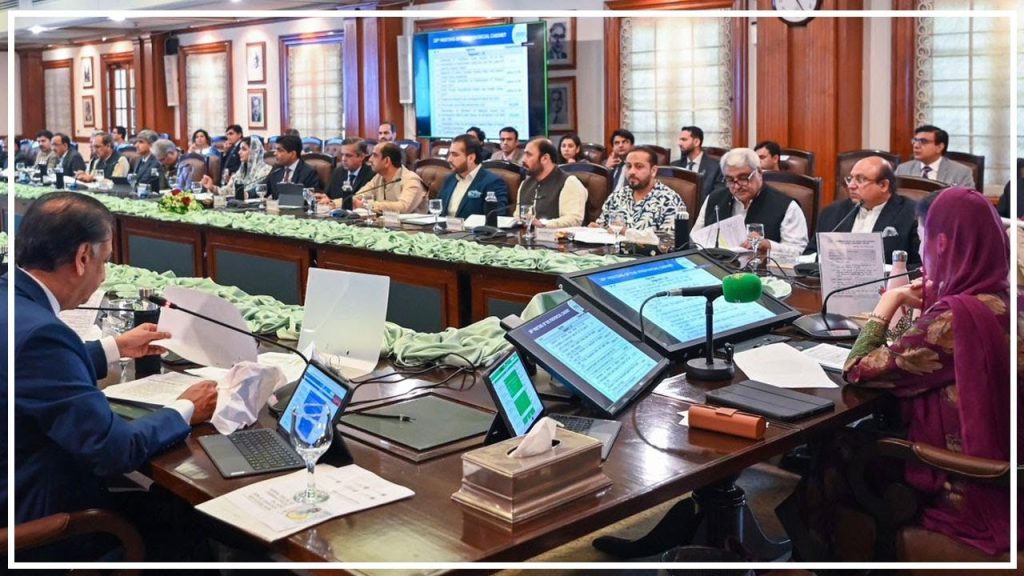In a significant milestone for governance and administrative reform in Punjab, the 28th meeting of the Provincial Cabinet was held under the leadership of Chief Minister Maryam Nawaz Sharif. The high-level session marked a landmark in provincial planning, with the approval of a 130-point agenda, reflecting a wide-ranging strategy for socio-economic development, institutional transparency, and public service delivery.
The meeting underscored the provincial government’s active governance style and its commitment to decision-making through structured, consultative processes. With such a detailed and comprehensive agenda, the cabinet demonstrated its focus on inclusive policy implementation and reforms across various sectors—including health, education, agriculture, law and order, digital governance, infrastructure, women’s empowerment, and local development.
Chief Minister Maryam Nawaz Sharif, presiding over the proceedings, emphasized that the approved agenda items were not only policy statements but actionable directives, each backed by timelines, assigned responsibilities, and performance indicators. She urged cabinet members to ensure strict follow-up and periodic reviews to maintain accountability across all departments.
Sources familiar with the cabinet proceedings revealed that several key decisions were related to public welfare initiatives, including the expansion of primary healthcare centers, improved school infrastructure in rural areas, digital land record updates, youth training programs, and women’s access to micro-financing and vocational education.
The Chief Minister also reportedly reviewed performance updates from departments and instructed secretaries and administrative heads to streamline service delivery mechanisms, reduce bureaucratic red tape, and adopt technology for greater efficiency and transparency. She reaffirmed her administration’s resolve to bring visible and measurable change in citizens’ everyday lives.
The 130-point agenda’s breadth reflects a whole-of-government approach, tackling everything from major structural reforms to localized, people-centric interventions. It includes plans for upgrading urban transport systems, increasing transparency in procurement processes, expanding green energy adoption, and promoting inter-departmental coordination.
The cabinet also discussed budgetary allocations, implementation roadmaps, and timelines for short-term and long-term impact projects. Each approved point is set to feed into a broader provincial reform strategy that aims to elevate Punjab’s governance standards to a more modern, citizen-responsive model.
As the first woman Chief Minister of Punjab, Maryam Nawaz Sharif’s leadership of this pivotal meeting signals her intent to assert policy control with efficiency, depth, and reform-oriented vision. Her administration’s focus appears firmly rooted in inclusive development, institutional integrity, and people-first governance.



Comments (0)
No comments yet. Be the first to comment!
Leave a Comment